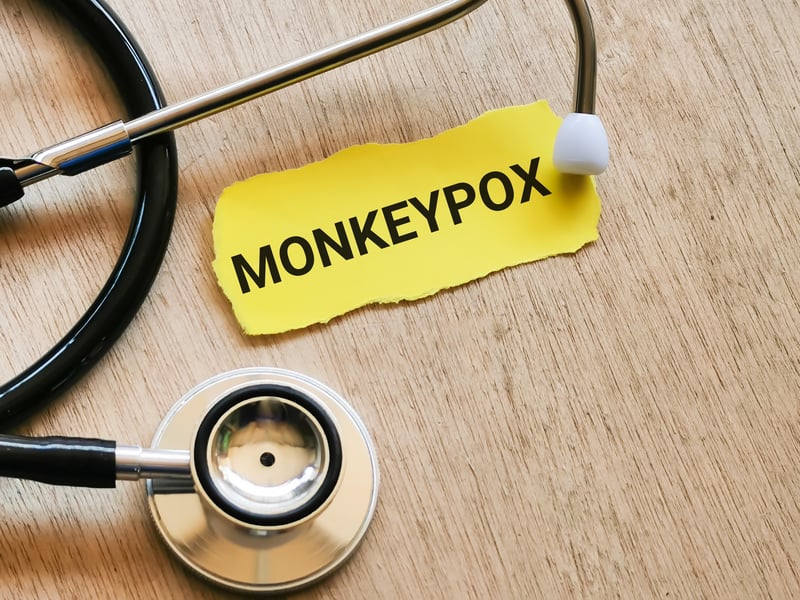Get Healthy!

- Ernie Mundell
- Posted November 3, 2022
Monkeypox in Kids, Teens Is Rare and Seldom Severe: CDC
Out of the more than 25,000 U.S. cases of monkeypox reviewed in a new study, just 0.3% occurred in people under the age of 18, new government data shows.
Most of the kids and teens who contracted the virus -- 89% -- "were not hospitalized, none received intensive care unit [ICU]-level care, and none died," reported a team led by Ian Hennessee, with the Monkeypox Pediatric Working Group at the U.S. Centers for Disease Control and Prevention.
Since its global emergence earlier this year, monkeypox, which is typically confined to Africa, has infected tens of thousands of people worldwide.
The viral illness is characterized by painful lesions and typically requires skin-to-skin contact to spread. The vast majority of cases have occurred among gay and bisexual men.
Cases among children and adolescents have remained rare. In their analysis, the CDC team looked at 25,038 U.S. cases occurring between mid-May and late September.
Of those cases, only a tiny fraction -- 83, or 0.3% -- occurred in people under the age of 18. Fifty-five of those cases were among adolescents aged 13 to 17, and another 28 occurred in kids up to age 12.
How did the younger kids contract monkeypox? According to Hennessee's team, 20 cases occurring in kids under the age of 13 had enough data available to hazard a guess.
In 19 of those cases, kids "were exposed in the household setting; for 17 of these children, the reported exposure was direct skin-to-skin contact that routinely occurs between a child and an adult caregiver," the researchers reported.
In the 20th case, it's suspected that the child contracted monkeypox after using an item, such as a towel, previously used by an infected adult.
Among the 35 cases among adolescents with available data (32 of whom were males), it's thought that sexual contact was the primary mode of transmission, the CDC team said. Investigations showed no sign that sexual abuse was involved in any of these cases.
Fortunately, none of the children or teens infected with monkeypox in the United States required ICU care, the team reported.
None of the kids under the age of 13 had monkeypox lesions in the anogenital area, and if lesions were present they occurred mainly on the torso, the researchers noted.
Two children under the age of 5 did contract monkeypox rash that involved lesions on their eyelids, while another older child also had eye issues related to monkeypox -- all three were hospitalized and later released.
Among the 55 adolescents with monkeypox, lesions occurred in the anogenital area in about 60% of cases, the CDC team reported. They said six of the cases were so serious as to require hospitalization, typically for "pain management, treatment of secondary bacterial infections, and systemic symptoms with rash."
As happens with adult cases of monkeypox, many of the affected kids and teens received tecovirimat (TPOXX) and other medications as treatment.
While rare, cases of monkeypox in kids can occur, so "adults with monkeypox who interact with children in the household setting should follow transmission prevention guidelines to prevent the spread of monkeypox," Hennessee's group said. That includes covering up any lesions to minimize the risk of skin-to-skin contact.
Sexually active teens, especially boys involved in male-to-male sex, should consider getting the Jynneos vaccine, which can prevent monkeypox infection, the researchers added.
The findings were published Nov. 4 in the CDC journal Morbidity and Mortality Weekly Report.
More information
Find out more about monkeypox at the American Academy of Pediatrics.
SOURCE: Morbidity and Mortality Weekly Report, Nov. 4, 2022







